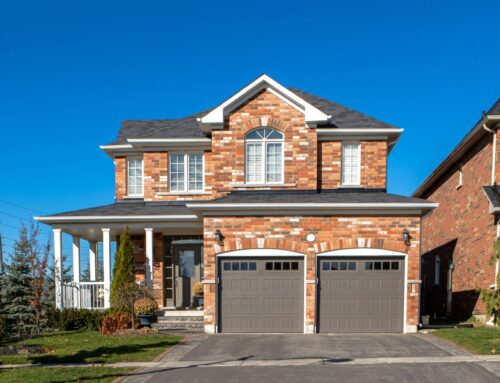Wise Tips for Negotiating Better Deals
The real estate market has been extremely competitive for two years now. When homebuyers approach purchasing, the process moves fast. That’s why we believe having all the tools in your arsenal from the outset is important if not essential. The Wise Team is always here to help you in your real estate journey, so here are some Wise Tips for negotiating better deals when closing on your dream home!
What Is Negotiable?
Here are the items that are negotiable in the home buying or selling process:
- Price
Everyone knows that price is the first thing to negotiate, whether it needs to go up or down depending on the market. - Closing Costs
These include the origination and underwriting of the mortgage, real estate commissions, taxes, insurance premiums, and title and record filing. During negotiations, one party may take on part or all of these costs as incentives. - Closing Date
This date is subject to change, but can mean missing out on some inspections. If the seller or buyer wants to move fast, this can be very incentivizing. - Home Repairs
If the property needs repairs before it can sell, offering to cover the cost of repairs either before closing or in the closing price of the home can help the sale. - Inclusions
Looking through the home and picking out appliances, furniture, or décor may help sweeten the deal, especially if the buyer fawns over a particular item.
With these in mind, we can discuss ways of approaching these negotiables to optimize your purchasing experience.
5 Wise Tips For Negotiating.
It’s your realtor’s responsibility to work with the opposing party to present offers, requests, and proposals during the buying and selling process. We work closely with our clients to find the best options available and build these offers before speaking with the other side. Here are our Wise Negotiating Tips to prepare you for your home buying experience in today’s housing markets.
- Do Your Research
The first thing to do before putting in an offer or starting the negotiation process is to do some research on the real estate market in which you’re looking. Ask your realtor about neighboring properties and how they sold and what deals were struck. Read up on market trends and see what similarly priced homes look like in your area. The more data you have, the better your instincts will be when counter-offers hit the table. - Start Close To Market Value
When building an offer, make sure you stay close to the market value. Striking out lower than market value can often lead to the seller ignoring the offer. Your you’re selling your property and push too high over market value buyers will walk away. In the post-COVID real estate market, offers are coming in much higher than list price. This has shifted the market valuation of homes much higher than previous years, and offers are typically accepted over list price about 80% of the time. Make sure to consider this when putting in offers and negotiating the sale. - Stay Positive & Use Affirming Language
Keeping yourself positive throughout the sale is key to securing a desired deal. Don’t be quick to respond to an offer. This can help you manage your emotions. During the buying and selling process stress can set in, especially if you are rushed for whatever reason. This can lead to quick, irrational decisions in real estate. Taking your time allows you to think through offers and craft better proposals in return. When returning a different offer, make sure to respond with affirming language to the previous proposal. Phrases like, “I think we’re on the right track,” and “I appreciate what you’ve done for us so far, but I’d like to request one more thing,” can build a better relationship when requesting more on the offer. - Have A Back-Up Plan
It’s good to have back-up plans for offers and in real estate in general. This post-COVID real estate market moves fast, and often over list price. If you are in the market to buy, it may be prudent to have your eye on several properties as an easy back up plan. When you do put in offers, make sure to think of other options if your offer is turned down. Just because the seller says no once does not mean you’re completely out of the game. Draft a second proposal with different offerings (close date shift, price change, inclusions, etc.) for when the first offer is turned down. This will also help alleviate stress if you’re having a hard time finding a place, as well as increase your odds in moving faster when you do find the perfect home. If you’re selling in this post-COVID world, know what you’re willing to negotiate ahead of time. That way when offers come in you can return a proposal with few alternatives that work for both parties. - Know When To Say “No”
This may be the hardest part, especially if you’re having a hard time finding a place. Make sure you know where you are unwilling to negotiate. Are you looking for a turnkey home, with no remodeling or repair needs? Or are you willing to update several things inside your new home? Do you need inclusions in order to move, like a washer & dryer, refrigerator, etc.? Having this shortlist of non-negotiables can help you say “no” or know when to walk away. And likewise for sellers. If your property needs work (branch removal, lawn maintenance, roof repair, new windows, etc.) know what you can afford to handle before sale so you can include them in deals, or say now when the buyers add items to offers.
Even when the market moves past, prepare yourself. Don’t rush into things without knowing what you want, and what you’re willing to negotiate on – regardless of if you’re buying or selling. Do you have some negotiation tips for buying in this fast-paced market? Leave a comment below! And when you’re ready to dive in, get in touch with The Wise Team.





